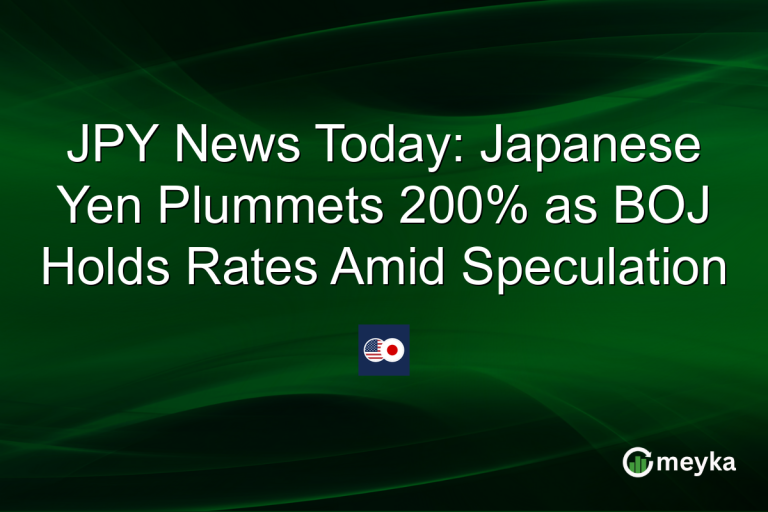Taiwan’s Yageo Ups Shibaura Takeover Bid to ¥7,130 Per Share
In the fast-changing electronics world, big deals shape the future of industries. One such move is Taiwan’s Yageo raising its takeover bid for Japan’s Shibaura Electronics to ¥7,130 per share. This higher offer has caught the attention of global investors. It is not just about money; it is about power, strategy, and long-term growth.
Yageo is already a strong name in electronic components. Shibaura, on the other hand, is known for its thermistors and sensors used in cars, appliances, and many devices we use every day. When we put these two companies together, we see more than a business deal; we see a plan to expand, innovate, and strengthen market reach.
At the same time, such cross-border acquisitions are never simple. Governments, regulators, and even rival companies are watching closely. For Taiwan’s Yageo, the raised offer signals its seriousness in making Shibaura part of its global network. For us, as observers, it gives a front-row seat to a story of ambition, opportunity, and risk in the tech supply chain.
Company backgrounds
Yageo Corporation
Yageo is a Taiwan-based giant in passive parts. It leads in chip resistors and has grown by acquisitions across Asia, Europe, and the U.S. The company supplies parts used in phones, autos, and industrial gear. Management has framed the Shibaura move as a product-fit play that can add scale and new sensor know-how.
Shibaura Electronics
Shibaura is a Japanese maker of thermistors and temperature sensors. Its parts sit inside vehicles, home appliances, and factory systems. The company’s investor pages place steady focus on NTC thermistor leadership and regular financial disclosures, showing a mature, export-oriented business.
The takeover battle
The fight has moved fast. Yageo launched an unsolicited tender offer earlier in 2025. Minebea Mitsumi, a Japanese component supplier, entered with a competing bid. Yageo lifted to ¥6,200 per share. Minebea matched. Yageo then raised ¥6,635. Now Yageo has upped the price again to ¥7,130 per share and extended the tender to September 8, 2025. Minebea says ¥6,200 is its ceiling and set an August 28, 2025, deadline. This has turned Shibaura into one of Japan’s most-watched bids of the summer.
The latest raise matters. It signals resolve from Yageo and forces shareholders to choose between a higher foreign bid and a lower domestic one with fewer political questions. Reuters reports the sequence and timing, confirming the fresh price and window.
Strategic motivations behind the bid
Yageo dominates resistors and other passives. Shibaura brings temperature-sensing depth. The combo rounds out a platform that can sell both control and sensing parts into the same end markets. That tightens relationships with OEMs and shortens design cycles. Management has repeatedly cited “synergy” and tech complementarity as reasons for paying up.
Shibaura sensors are standard in auto powertrains, battery packs, HVAC, and white goods. Demand for reliable temperature sensing is rising with EVs and energy-efficient appliances. Buying Shibaura inserts Yageo into these high-reliability niches. Company materials highlight thermistor strength and long client ties in Japan.
A combined group can dual-source materials, share fabs and testing, and pool R&D in sensors and passives. Yageo has said it would invest in Shibaura’s R&D and protect sensitive know-how, a message tailored to ease security concerns and keep production on Japanese soil.
Financial and market implications
The ¥7,130 price represents a clear step-up from ¥6,635 and earlier ¥6,200 tiers. That lifts the implied equity value into the $600+ million range, depending on final share count. Reuters has cited a valuation north of $630 million as the fight escalated. A richer price raises the bar for post-deal returns, but it also improves the odds of tender success.
Funding terms have not been fully detailed in public reports, though Taiwan’s Yageo track record and scale suggest the capacity to finance via cash and debt. The company also extended the offer period, which buys time to navigate reviews and court holders. Market coverage logged the extension to September 8 alongside the new price.
Regulatory and geopolitical considerations
Japan screens foreign takeovers under the Foreign Exchange and Foreign Trade Act (FEFTA). Reviews involve the Ministry of Finance and sector ministries, with low filing thresholds and special rules for sensitive areas. This process has grown more active in recent years.
In August 2025, Japan classified Shibaura as “core to national security.” Yageo had already filed for a security review, anticipating scrutiny. The designation signals tighter oversight but does not automatically block the bid since the review path is in motion. It also reflects a wider trend of labeling more listed firms as core.
Policy changes this spring also tweaked export-control and review mechanics, keeping critical tech under closer watch. Any foreign buyer must show plans for tech protection, capital spending, and employment stability. METI’s April notice underscores that direction.
Risks and challenges
Security screening can stretch timelines and add conditions. Any mismatch between Japanese policy goals and buyer plans could force remedies or ring-fencing. Shibaura’s new status raises that risk.
Shareholders face a choice between a higher foreign offer and a lower domestic one. Minebea’s stance on no raise beyond ¥6,200 simplifies the price ladder but keeps an on-shore option alive. If the tender stalls, the spread could widen and create short-term volatility.
Cross-border deals in Japan must align factory practices, supplier ties, and decision-making styles. Protecting engineers, know-how, and customer confidence is essential. Taiwan’s Yageo has floated tech-protection and local investment plans, but execution risk remains.
A higher per-share price lifts the hurdle rate. If auto and industrial demand soften, payback extends. Currency swings can also bite when cash flows and debt service differ by market.
Opportunities post-merger
A successful deal would create a broader components house. The group could pitch sensors plus passives to top auto and electronics accounts. That improves wallet share and design-win odds. It also supports platform sales into EV thermal management, heat pumps, and factory automation, where accurate sensing drives safety and efficiency. Shibaura’s installed base and NTC know-how pair naturally with Taiwan’s Yageo distribution muscle.
Scale brings purchasing leverage and shared testing and packaging. Over time, unified R&D can push smarter sensor modules and tighter integration with power components. That raises switching costs for customers and deepens the moat in an otherwise price-sensitive parts market.
Industry expert insights
Recent reporting quotes analysts who view Shibaura as strategically important in the global component chain. The sustained bidding and fresh national-security label validate that view. Reuters coverage tracks the step-ups, the deadlines, and the policy angle, showing how foreign bids now navigate Japan’s tougher FDI gate while still getting traction if they meet conditions.
Legal analyses of FEFTA also point to “hair-trigger” filings and a broader net for sensitive tech. That context explains why bidders must offer tech-protection and local investment plans, not just a price.
Bottom Line
The higher ¥7,130 bid changes the outlook. It makes it more likely that enough shareholders will accept the offer, even under national-security review. Minebea’s cap at ¥6,200 removes one layer of competition. The real issues now are approval timing, rules on sensitive data, and how production will be managed after the deal. If regulators give the green light, the merger will join a resistor leader with a thermistor expert.
Together, they could become a stronger supplier for autos, appliances, and industrial markets. The result will also show how Japan balances foreign investment with tighter controls on technology in 2025.
Disclaimer:
This is for informational purposes only and does not constitute financial advice. Always do your research.






